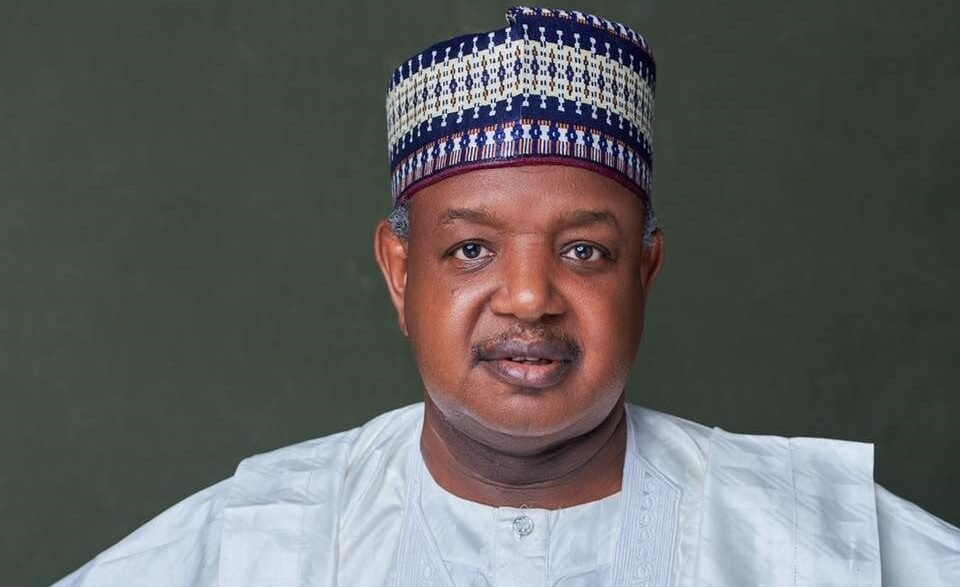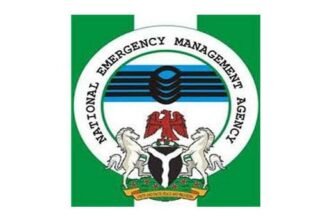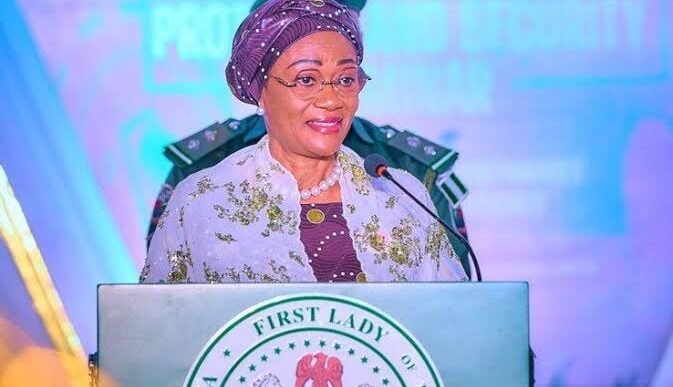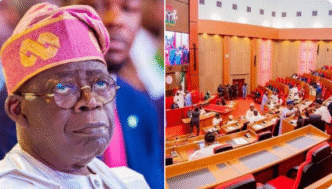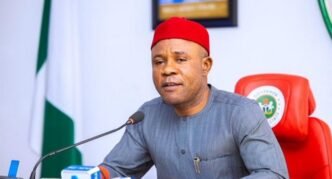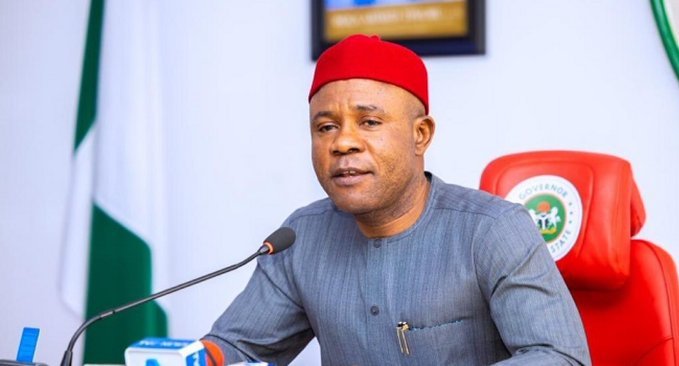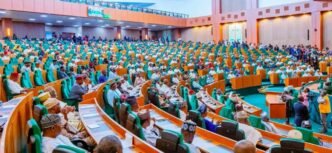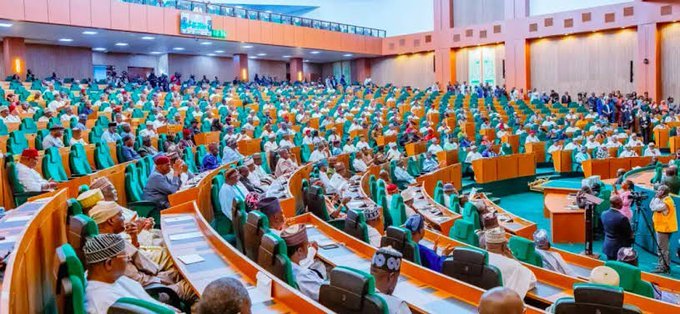Nigeria’s agricultural sector has received a significant boost following the approval of a €190 million (approximately ₦320.5 billion) credit facility by the European Union (EU) through the European Investment Bank (EIB). The facility aims to expand access to finance for farmers and agribusinesses across the country, strengthening food security, promoting job creation, and accelerating Nigeria’s drive toward economic diversification.
The announcement was made during a high-level bilateral meeting between senior officials of the European Investment Bank and a delegation from Nigeria’s Federal Ministry of Budget and Economic Planning. The meeting took place on the sidelines of the Global Gateway Forum held recently in Brussels, Belgium — an event that brought together leaders and policymakers from around the world to discuss sustainable infrastructure and development partnerships.
A statement issued on Monday by Bolaji Adeniyi, Special Adviser on Media to the Minister of Budget and Economic Planning, confirmed the development and highlighted the initiative’s potential to transform Nigeria’s rural economy through increased private-sector participation and inclusive financing.
Focus on Agricultural Transformation
According to the EIB’s Director for International Partnerships, Thourayya Tricki, the €190 million facility reflects the European Union’s commitment to deepening its economic and development partnership with Nigeria. She noted that agriculture remains one of the most critical sectors in achieving sustainable growth and resilience against climate change.
“The EU, through the European Investment Bank, is proud to support Nigeria’s economic diversification agenda. This facility is designed to promote climate-smart agriculture, strengthen value chains, and empower farmers — especially women and youth — who play vital roles in Nigeria’s food production system,” Tricki said.
The EIB official added that the funds will be channelled through Nigerian commercial banks and development finance institutions (DFIs) to ensure that both smallholder farmers and large-scale agribusinesses can access long-term, low-interest credit.
Government Welcomes the Initiative
Nigeria’s Minister of Budget and Economic Planning, Senator Abubakar Atiku Bagudu, who led the delegation to the Global Gateway Forum, welcomed the facility as a major step toward revitalizing the nation’s agricultural base.
Bagudu said the partnership aligns with President Bola Tinubu’s economic reform agenda, which places agriculture at the center of efforts to boost productivity, create jobs, and ensure food self-sufficiency.
“The approval of this credit line by the European Union through the EIB is a timely intervention that will help unlock the potential of Nigeria’s agricultural sector. Our government is committed to providing the enabling environment, policy stability, and infrastructure support needed to maximize the impact of this funding,” Bagudu said.
He emphasized that the funds would be directed toward key areas such as agricultural mechanization, irrigation, climate resilience, storage infrastructure, and value-chain development, especially in states with strong comparative advantages in food and cash crop production.
Expanding Access to Agricultural Credit
One of the biggest challenges facing Nigeria’s agricultural sector has been the limited access to affordable credit. Many smallholder farmers, who contribute about 80 percent of Nigeria’s food supply, often lack the collateral or formal records required by commercial banks to access financing.
This new EU-backed facility seeks to bridge that gap by leveraging the capacity of participating financial institutions to design innovative credit products tailored to the unique needs of farmers and agribusinesses.
According to sources within the Budget Ministry, the initiative will also prioritize gender-inclusive lending, ensuring that women-led enterprises and youth-owned agribusiness startups receive adequate support.
“The EIB funding will not only increase credit availability but also stimulate private sector confidence in the agricultural value chain,” said a senior ministry official familiar with the discussions. “It’s a strategic intervention that complements Nigeria’s ongoing efforts to modernize agriculture through technology and sustainable practices.”
Boosting Economic Diversification and Food Security
Nigeria’s agricultural sector, which contributes roughly 25 percent to the country’s Gross Domestic Product (GDP), remains a key pillar of national development. However, decades of underinvestment, poor access to credit, and infrastructure gaps have limited its full potential.
The Federal Government has consistently emphasized the need to diversify the economy away from oil dependence, and agriculture has been identified as a prime driver of that transformation.
By unlocking access to long-term financing through this EU facility, analysts believe Nigeria can significantly increase agricultural productivity, reduce post-harvest losses, and enhance its export capacity.
Economic experts have also described the funding as a catalyst for rural development. Dr. Funke Adebayo, an agricultural economist based in Abuja, said the facility could “inject new life into Nigeria’s value chain system by promoting agro-processing, storage, and distribution.”
She added: “The multiplier effects will be enormous — more jobs, better rural incomes, reduced food imports, and greater resilience against external shocks.”
Alignment with Climate-Smart Agriculture
Beyond financial inclusion, the EIB’s investment is also focused on climate-smart agricultural practices. With Nigeria increasingly facing the impact of climate change — including desertification, flooding, and unpredictable rainfall — the facility will support innovations in water management, renewable energy use, and sustainable land management.
Part of the funding will be dedicated to projects that integrate technology and green solutions into agricultural production. This includes solar-powered irrigation systems, efficient fertilizer use, and precision farming techniques.
Thourayya Tricki of the EIB noted that such projects would help Nigeria transition toward a more sustainable and resilient agricultural system. “Our goal is to ensure that the sector grows in a way that supports the environment, preserves natural resources, and enhances livelihoods,” she said.
Strengthening EU–Nigeria Partnership
The new funding reinforces the EU’s long-standing development cooperation with Nigeria. Over the past decade, the European Union and its institutions have supported several initiatives aimed at improving Nigeria’s infrastructure, governance, and sustainable growth.
The Global Gateway initiative — under which this latest credit facility was announced — is the EU’s flagship framework for global investment in infrastructure and green development. Nigeria’s inclusion in this partnership underscores its strategic importance as Africa’s largest economy and one of the continent’s fastest-growing agricultural markets.
According to the Minister’s office, discussions are also ongoing between the EU, the EIB, and Nigerian authorities to expand cooperation into other priority areas such as renewable energy, digital innovation, and education.
A Path Toward Inclusive Growth
The €190 million EIB facility is expected to be disbursed in phases, with monitoring mechanisms in place to ensure transparency and effective utilization. Participating banks and DFIs will be required to report on loan performance, environmental compliance, and social impact.
Observers say that if properly implemented, the initiative could become one of the most impactful agricultural financing programs in Nigeria’s recent history.
As the government intensifies efforts to tackle food inflation and strengthen local production, this EU-backed facility offers renewed hope for farmers and agribusinesses struggling with funding constraints.
With strategic execution and stakeholder collaboration, the investment could mark a turning point for Nigeria’s agricultural landscape — driving the country closer to achieving food security, rural prosperity, and economic resilience.


